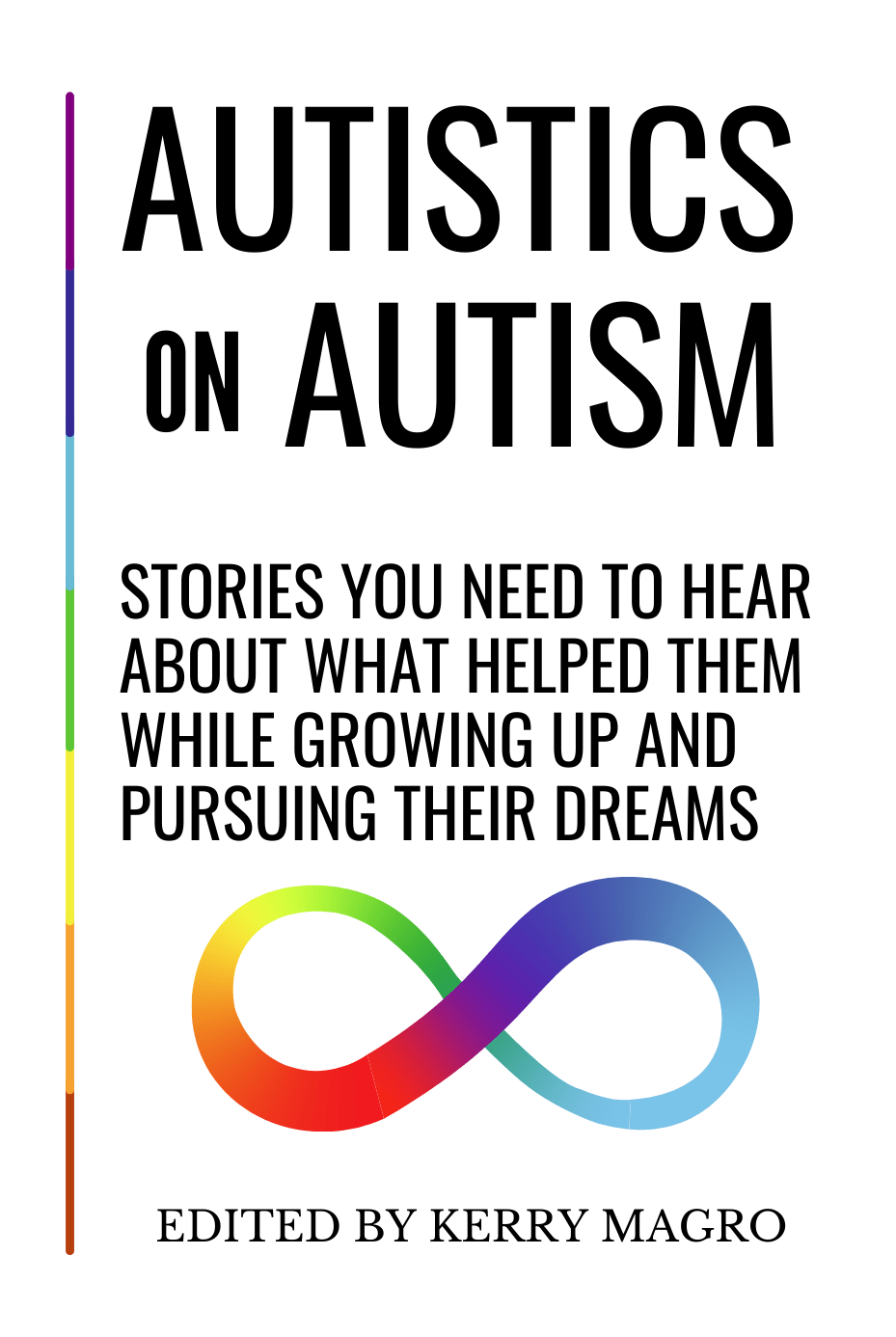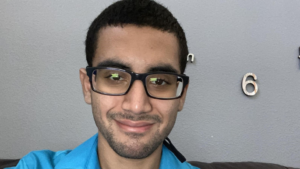This guest post is by Elizabeth Ogorek, a young woman on the autism spectrum who was diagnosed with ASD at age 4 and has been accepted into Eastern Kentucky University. Elizabeth is applying for the Spring 2022 Making a Difference Autism Scholarship via the nonprofit KFM Making a Difference started by me, Kerry Magro. I was nonverbal till 2.5 and diagnosed with autism at 4 and you can read more about my organization here. Autistics on Autism: Stories You Need to Hear About What Helped Them While Growing Up and Pursuing Their Dreams, our nonprofit’s new book, will be released on March 29, 2022 on Amazon here for our community to enjoy featuring the stories of 100 autistic adults.
When I was 4 years old, I was diagnosed with autism. For the next couple years, I had a vague idea of what that meant. I heard the word thrown around occasionally by my parents; and I knew that they typically used it when they were talking about me. I knew that “autism” was the reason why I had to get pulled out of class for occupational and speech therapy, why I had an exaggerated reaction to my emotions and to loud noises, and why I did some things that other kids didn’t do, like obsessing over air conditioners or flapping my hands. At the same time, I didn’t fully understand what it meant to be autistic. That would soon change.
When I was around 11, I looked up autism on YouTube out of curiosity, and came across a video of a nonverbal autistic woman named Carly Fleischmann, who typed on a computer to communicate. Although Carly’s support needs are vastly different from mine, many of the things she said resonated with me. For example, in one clip the man who was interviewing Carly asked her why autistic people “flap their hands, cover their ears, hum, and rock”. Carly told him that these actions help her block out sensory input, which can be overloading to autistic people. She explained to him that [autistic people’s] brains are wired differently, and take in many different sounds and conversations all at once. Hearing this was like a lightbulb lit up in my head. While I knew that I flapped my hands and did other repetitive movements known as “stimming”, and that I didn’t like loud noises, I never realized that those two idiosyncrasies were connected.
I became inspired to do more research and saw posts from other autistic people, describing their unique ways of experiencing the world, many of which I related to. Certain aspects of my life started to make sense, and I began to realize that there were thousands of other human beings out there who were just like me. I learned that autism wasn’t just this lifelong condition that I was stuck with, but rather my identity.
I began to be more open about my diagnosis. I “came out” as autistic to a few of my close friends, began posting about it on social media, and even gave a talk about it to my seventh-grade class! In middle school, my autism didn’t seem to produce much of a barrier to my friendships. I went to a small grade school, so my friends either knew that I was autistic already (word gets around in a small school), or had just gotten used to my “quirks”. High school, however, proved to be a different story.
I graduated middle school with a solid group of friends and a confident mindset. Unfortunately, this group of friends broke apart once we got to high school, and so I was forced to find a new group of friends. I chose not to disclose my autism to my new classmates. Looking back, I’m not entirely sure why I made this decision, given how much I had learned to accept myself over the previous 3 years. I now know that was a grave mistake. Instead of remaining true to myself, I began to hide myself in an attempt to fit in.
I diligently observed other girls in my grade, and took note of how they interacted with each other, what they talked about, and what they liked and disliked, and then took those observations and made them part of my own personality. No matter how hard I tried though, I never seemed to be quite the right shape for the mold, which caused me to have mental health issues throughout my first year of high school. One day in the Spring, I was talking to a therapist, and she said something that really resonated with me. She told me that I was spending so much time and energy trying to be like everybody else, and that I should instead just focus on being myself. At first, I was skeptical, but then I thought about it some more. I thought about how anxious and exhausted I was trying to observe and memorize all of the social nuances, and then I thought back to middle school days, and how relaxed and happy I was just being myself, and decided to take my therapist’s suggestion into consideration.
I became more and more comfortable in my own skin. I stopped trying to force people to like me for who I pretended to be, and instead focused on those who seemed fond of who I really am. This was by no means easy. You see, being yourself is perhaps the most difficult sense of vulnerability one can experience. However, in the long run, it is so much better for you mentally and spiritually.
To this day, I still don’t have a ton of close friends. I don’t hang out with a huge group of girls every single weekend. And that’s okay. Throughout my Freshman year, I was under the impression that my friendships had to look the same as everyone else’s. After learning more about who I truly am, I realized that friendship is personal, and not everybody socializes in the same manner. There is no “right or wrong way” to make friends; how you, as an individual form friendships is valid.
I came to a realization that deep down inside, everyone appreciates individuality over conformity. Once I started being more confident in my personality, people seemed to start interacting with me more. It became easier for me to join into conversations without feeling like I was a hamburger being shoved inside a hot dog bun.
I’m not going to pretend that my mental health is perfect now. I still struggle a bit, and I probably always will. However, learning how to be my authentic self has caused the burden of these issues to lessen significantly.
Follow my journey on Facebook, my Facebook Fan Page, Tiktok, Youtube & Instagram,
My name is Kerry Magro, a professional speaker and best-selling author who is also on the autism spectrum that started the nonprofit KFM Making a Difference in 2011 to help students with autism receive scholarship aid to pursue post-secondary education. Help support me so I can continue to help students with autism go to college by making a tax-deductible donation to our nonprofit here.
Autistics on Autism: Stories You Need to Hear About What Helped Them While Growing Up and Pursuing Their Dreams, will be released on March 29, 2022 on Amazon here for our community to enjoy featuring the stories of 100 autistic adults. 100% of the proceeds from this book will go back to our nonprofit to support initiatives like our autism scholarship program. In addition, this autistic adult’s essay you just read will be featured in a future volume of this book as we plan on making this into a series of books on autistic adults.















